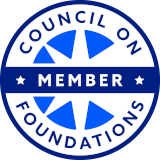Additional Financial Aid Information

Scholarships administered by Main Street Community Foundation are only one source of financial aid for local students pursuing post-secondary education. We hope that the below information helps you achieve your educational and career goals.
First Step to Getting Financial Aid
It is not a requirement, but all students pursuing post-secondary education should complete the Free Application for Federal Student Aid (FAFSA). The form can be found online at www.studentaid.gov and should be completed after October 1. Once you complete the FAFSA, the government will send you and the colleges you applied to the FAFSA Submission Summary (FSS). The FSS will explain how much aid you will need to attend college and your Student Aid Index (SAI), or how much your family is expected to contribute to your education each year.
Main Street Community Foundation asks that you provide us with your SAI and FSS, if possible, when applying for scholarships.
Community Scholarships
Many organizations in the Greater Bristol area and beyond want to help you pay for your post-secondary education. Below are just a few scholarships that are available to local students; this list is by no means exhaustive. Recipients of the following scholarships are selected by schools, committees or other organizations, and eligibility, application instructions and deadlines vary greatly.
- American Savings Foundation
- Bristol Rotary Club
- Religious organizations
- Your parents' employers and your employer
- Local associations and local chapters of national associations
National Scholarships
Many national or regional companies have scholarship programs, but they are much more competitive than local community scholarships. Below are just a few examples of such, and eligibility, application instructions and deadlines vary greatly.
Additional Sources of Financial Aid
The following are other sources that may be available to you depending on your financial situation and post-secondary institution.
- Scholarships from the college you are planning to attend. Some donors establish scholarship funds at a specific college to assist students attending that school.
- Work-study programs.
- Loans, including federal and private.
Tips
- Complete your FAFSA as close to October 1 as possible to ensure that you do not miss out on available aid and to ensure that your college can provide you a financial aid package as close to your acceptance date as possible.
- Talk to your guidance counselor about your financial situation as well as your plans for post-secondary education. They can help you find other sources to pay for college.
- If you are currently enrolled in college or planning to return, contact your former high school's guidance department. They may be able to help you find sources of financial aid that you may qualify for.





